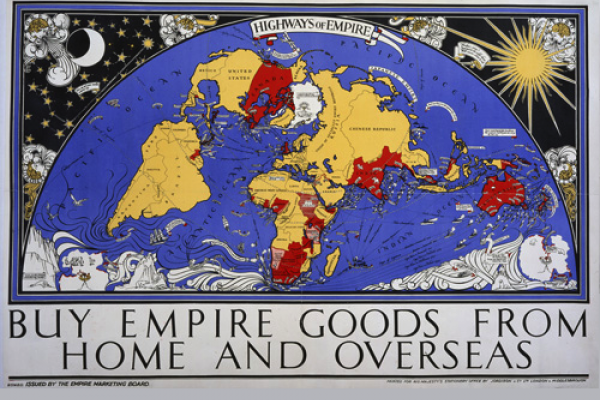In the 1930s the British state collaborated with avant-garde filmmakers, writers, and artists in the documentary film movement to change the narrative of British imperial power. By turning to films such as Windmill in Barbados and Song of Ceylon, this talk unfolds the relationship between documentary's attention to everyday life and broader geopolitical transitions.
Professor Davis's research and teaching interests are transnational modernism; late modernism and visual culture; aesthetics and politics; environmental humanities. He has published or forthcoming articles on oil aesthetics and insecurity, Virginia Woolf, Elizabeth Bowen, Henri Lefebvre, Maurice Blanchot, and various aspects of late modernism and midcentury culture. His first book, The Extinct Scene: Late Modernism and Everyday Life (Columbia University Press, 2015), unfolds the relationship between late modernism's various forms of attention to everyday life and the upheavals in the British world-system during its final decades.
He is beginning a second project, tentatively titled The Aesthetic World Republic: Geopolitics and Cultural Internationalism, that explores the ways European, African, Caribbean, and North American writers, artists, and intellectuals were enjoined to conduct political work adjacent to, and sometimes in place of, official state and inter-state channels. Over the next year he will be conducting archival research on a number of groups and organizations: The Congress for Cultural Freedom, the Transcription Centre, PEN International, the Caribbean Artists Movement, and Amnesty International. Spanning the 20th century, this project will help us understand how, and when, cultural production serves political ends and why that process is unpredictable and so fiercely contested.

